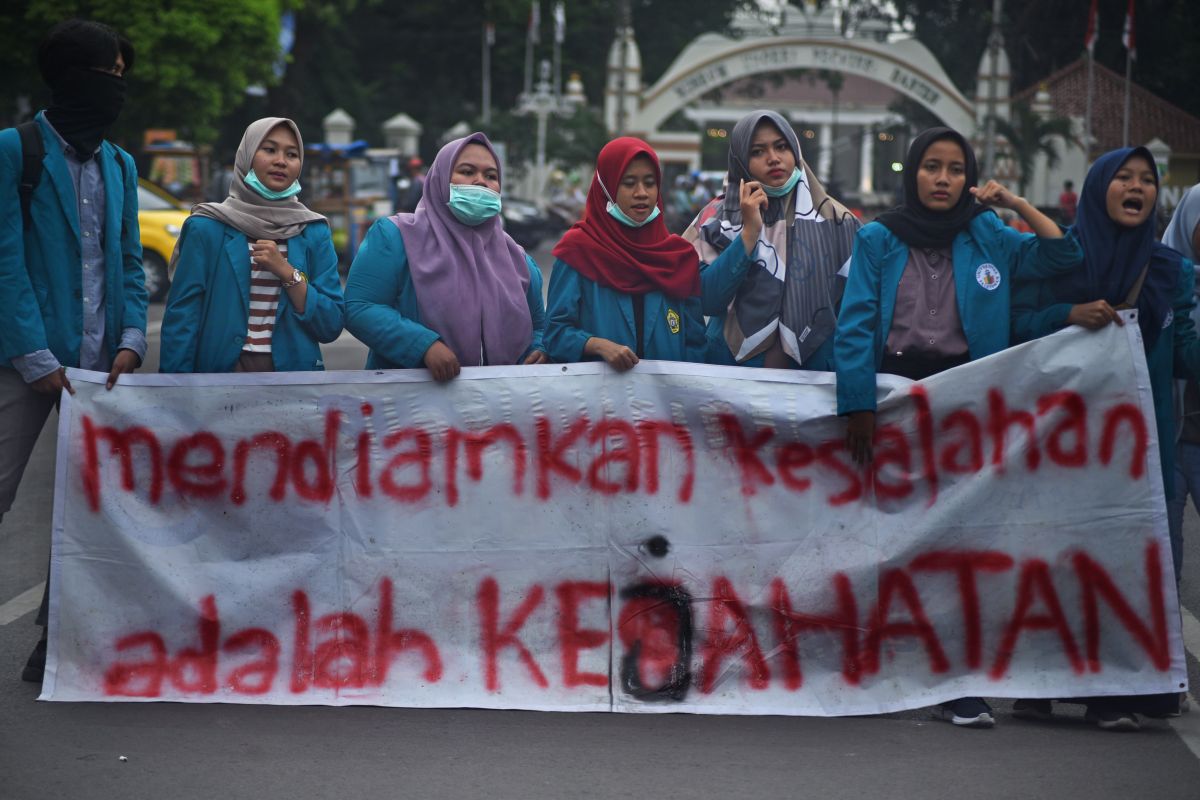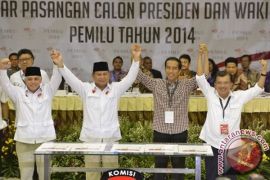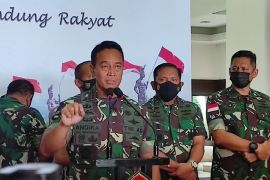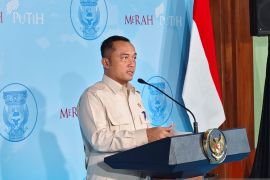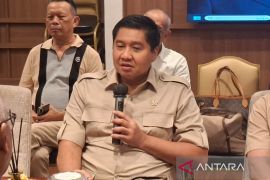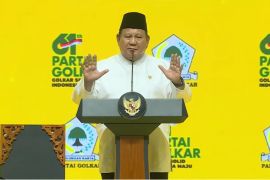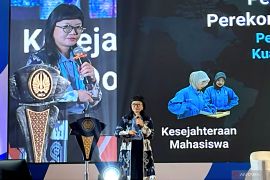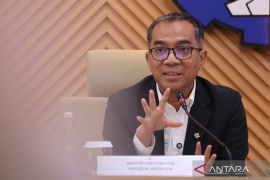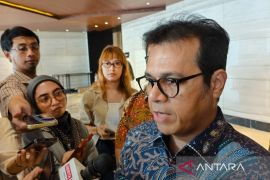A lack of evidence and absence of an ad-hoc human rights tribunal have stalled efforts to settle past gross human rights violations in IndonesiaJakarta (ANTARA) - The Asian Forum for Human Rights and Development and members in Indonesia, expressed concern over continual violation of human rights and fundamental freedom in the first 100 days of Joko Widodo’s (Jokowi’s) second presidential term.
These concerns rode high among the membership-based regional human rights organization and its members in Indonesia: Alliance of Independent Journalists (AJI), Commission for the Disappeared and Victims of Violence (KontraS), Human Rights Working Group (HRWG), the Indonesian Human Rights Monitor (Imparsial), the Indonesian Legal Aid and Human Rights Association (PBHI), the Indonesian Legal Aid Foundation (YLBHI), the Institute for Policy Research and Advocacy (ELSAM), and Yayasan Sekretariat Anak Merdeka (SAMIN).
Recorded data indicated a spike in human rights violations, indicating a lack of commitment and accountability of the government to protect human rights in accordance with international human rights principles and norms.
January 28, 2020, marked the first 100 days of Jokowi’s second term as president of Indonesia, and he has yet to fulfil his campaign promises from 2014 to address human rights abuses.
These include human rights violations in 1965 and 1998 as well as ones related to more recent protests in September 2019.
The latter especially holds significance, as the protests echoed dissatisfaction over the Jokowi administration adopting amendments to the Law that governs the Corruption Eradication Commission (KPK) and the introduction of the new draft of the Criminal Code.
The former is believed to weaken the role of the Commission, while the latter is deemed to further reinforce discrimination against minority groups.
The Asian Forum for Human Rights and Development, together with its members in Indonesia, called on the Government of Indonesia to take all necessary measures to address the situation and put a halt to the erosion of civic and democratic space in the country, Executive Director at Asian Forum for Human Rights and Development (FORUM-ASIA) Mukunda Kattel stated.
During the protest in September, reports constantly surfaced of the disproportionate use of violence and force by the police to suppress peaceful protests across Indonesia, resulting in several injuries and also fatalities.
Those arrested were reportedly ill-treated, tortured, and intimidated while in detention.
Thereafter, the police force, judiciary system, and the national human rights institutions did not adequately uphold the principles of transparency and impartiality while investigating the incidents.
To this day, not a single case has been properly addressed by the Government.
When it comes to fundamental freedom, during the Jokowi administration, cases of continuous repression of the freedom of expression, peaceful assembly, and association came to light.
Between October 2019 and January 2020, some 49 cases were recorded, including those of 83 people, mostly civilians and students, who were detained for voicing their dissent to the government.
These people were often labelled by the authorities as communists, radicals, separatists, and anti-sovereignty, especially when they spoke about issues, such as human rights violations in Papua; the six Papuan activists charged with subversive articles under the Indonesian law; LGBTQ issues; or other contentious matters. Children have also become victims, either directly or indirectly, in various cases of state oppression.
When it comes to policies, the Jokowi administration has not been able to allow the full and meaningful participation of the public in policy-making processes, as is apparent from the failure to consult the public on the potential socio-cultural, economic, and environmental impact of relocating the capital city from Java to Kalimantan.
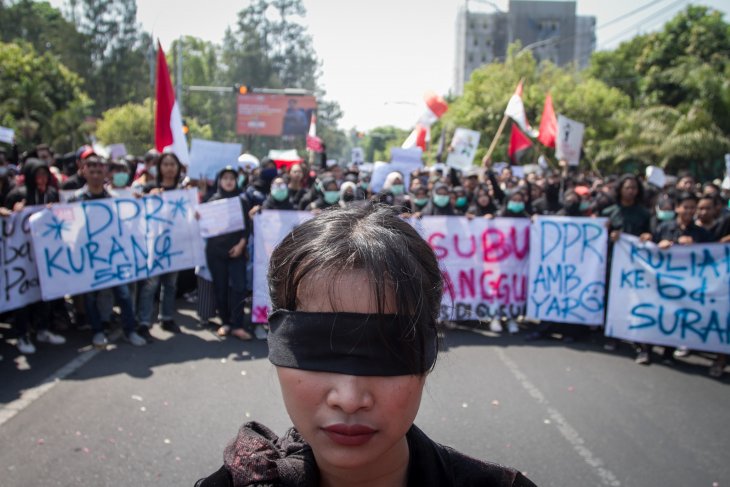
In the process of drafting the proposed law, which is likely to bring more harm than good as it diminishes workers’ rights, worsens environmental degradation, and criminalizes minorities, labor unions were not consulted.
This move clearly shows that Indonesia prioritizes businesses and investments over the protection of its workers.
The fact that Jokowi’s administration is moving further away from realizing his commitments to uphold human rights has left many disappointed amongst the people.
This trend is in direct opposition to Indonesia’s obligations as a current member of the UN Human Rights Council and a progressive member of the Association of South East Asian Nations (ASEAN).
The Asian Forum for Human Rights and Development has called on the Government of Indonesia, in particular, President Jokowi himself, to be accountable to all on the human rights violations occurring in the country, both past and present, by conducting thorough and transparent investigations that involve civil society, public participation, and international independent mechanisms, and to bring all perpetrators of human rights violations to account.
Furthermore, the Asian Forum has called on the government to put a halt to and repeal all contentious laws that can further violate the human rights of those, who are exercising their rights and fundamental freedoms, including students, workers, human rights defenders, people from marginalized groups, and all civilians.
Lack of evidence
A lack of evidence and absence of an ad-hoc human rights tribunal have stalled efforts to settle past gross human rights violations in Indonesia, Attorney General ST Burhanuddin stated.
Investigations launched by the National Commission on Human Rights (Komnas HAM) had failed to bring up sufficient evidence in two cases for prosecutors working on these cases, the attorney general had noted during a working meeting with the Commission III of the House Representatives here.
"Due to the lack of evidence, we have struggled to identify our suspects," he reaffirmed.
Indonesia's legal system has yet to adopt an ad-hoc human rights tribunal to settle the violations allegedly committed by some former high-ranking officials in the military.
However, the House of Representatives’ members can request the president for the tribunal, he added.
Despite the difficulties, past human rights violations can be settled through non-legal procedures, one of which is by providing rehabilitation and compensation for the victims, Burhanuddin suggested.
During the meeting with the House Representatives’ members, the attorney general referred to several cases that he claimed were not a part of the gross human rights violations. Some of the cases include Semangi I in 1998 and Semanggi II in 1999.
"For other cases, such as Banyuwangi's Killing Field in 1998 to 1999 (when magic practitioners were arbitrarily killed); Wasior incident in 2001; and Wamena incident in 2003, the law has been applied against the perpetrators. However, we have not yet probed the possibility of gross human rights violations that may be involved in the cases," he explained.
EDITED BY INE
Editor: Fardah Assegaf
Copyright © ANTARA 2020
